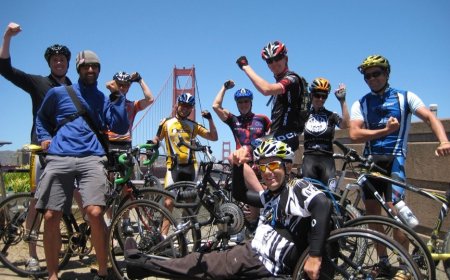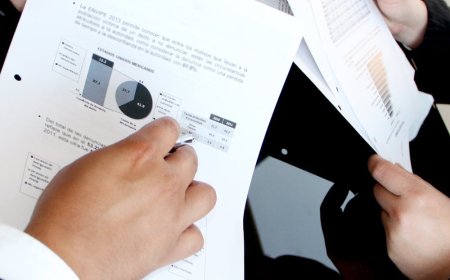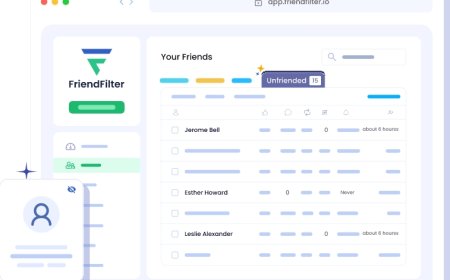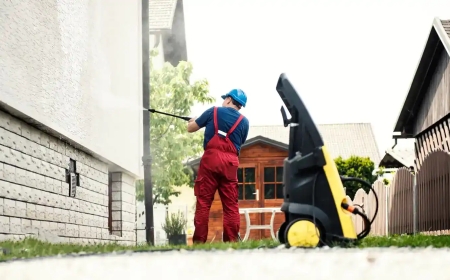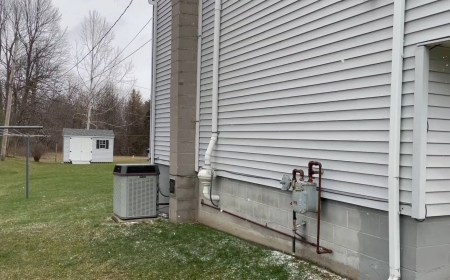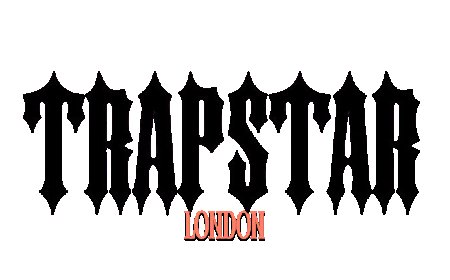How To Improv Comedy Class Dallas
How to Find and Excel in Improv Comedy Class in Dallas Improvisational comedy, or improv, is more than just laughter on stage—it’s a dynamic art form that builds confidence, enhances communication, and fosters deep human connection. In Dallas, a city known for its vibrant arts scene and entrepreneurial spirit, improv comedy classes have surged in popularity among professionals, students, and creat
How to Find and Excel in Improv Comedy Class in Dallas
Improvisational comedy, or improv, is more than just laughter on stageits a dynamic art form that builds confidence, enhances communication, and fosters deep human connection. In Dallas, a city known for its vibrant arts scene and entrepreneurial spirit, improv comedy classes have surged in popularity among professionals, students, and creatives alike. Whether youre looking to overcome stage fright, sharpen your quick thinking, or simply have fun with a community of like-minded individuals, enrolling in an improv comedy class in Dallas can be a transformative experience.
This guide provides a comprehensive, step-by-step roadmap to finding, joining, and thriving in an improv comedy class in Dallas. Youll learn not only how to navigate the local scene but also how to develop the core skills that make great improvisers. From selecting the right school to mastering the principles of Yes, And, this tutorial is designed for beginners and intermediate learners seeking to grow both personally and artistically through the power of spontaneous performance.
Step-by-Step Guide
Step 1: Understand What Improv Comedy Is
Before diving into classes, its essential to grasp the foundational philosophy of improv. Unlike scripted theater, improv is unscripted, collaborative storytelling driven by audience suggestions and spontaneous reactions. The core ruleYes, Andmeans accepting what your scene partner offers and building upon it. This principle extends beyond comedy; its a mindset for collaboration, creativity, and emotional intelligence.
Improv isnt about being funnyits about being present. The best improvisers arent the ones telling the funniest jokes; theyre the ones listening deeply, reacting truthfully, and supporting their partners. Understanding this shifts your focus from performance to participation, making your learning journey more authentic and less intimidating.
Step 2: Research Local Improv Schools in Dallas
Dallas boasts a thriving improv community with several well-established schools and theaters offering regular classes. Start by compiling a list of reputable institutions:
- The Comedy Zone Offers beginner to advanced workshops and hosts weekly shows.
- Upright Citizens Brigade (UCB) Dallas Though UCBs New York and LA campuses are more famous, their Dallas affiliates provide high-quality training rooted in the UCB improv philosophy.
- Improvised Dallas A community-driven theater known for its inclusive environment and diverse class offerings.
- Second City Dallas An extension of the legendary Chicago comedy institution, offering structured curricula and industry connections.
- Stage West Improv Focuses on narrative-based improv and character development.
Visit each schools website and review their class schedules, pricing, instructor bios, and student testimonials. Look for schools that offer Beginner Improv 101 as a starting point. Avoid institutions that promise instant comedy genius or require upfront long-term commitments without a trial class.
Step 3: Attend a Free Workshop or Open Mic
Most improv schools in Dallas offer free introductory workshops or open mic nights. These are invaluable opportunities to experience the energy of a live class without financial commitment. Attend one or two to gauge the teaching style, class size, and overall vibe.
During these sessions, observe:
- Is the instructor encouraging and non-judgmental?
- Do students seem comfortable and engaged?
- Is there a balance between structure and freedom?
A good class feels like a safe space where mistakes are celebrated as learning moments. If you leave feeling inspired rather than anxious, youve likely found the right fit.
Step 4: Enroll in a Beginner Class
Once youve identified your preferred school, enroll in a 68 week Improv 101 course. These classes typically meet once a week for 23 hours and cover:
- Listening and agreement (Yes, And)
- Building scenes with clear relationships and objectives
- Character development and physicality
- Group dynamics and ensemble play
- Overcoming fear and self-consciousness
Most beginner classes cap enrollment at 1216 students to ensure personalized feedback. Dont worry if youve never performed beforemost students are complete novices. The goal is not perfection but progress.
Step 5: Practice Outside of Class
Improvisation is a muscle. The more you use it, the stronger it becomes. After each class, spend 1015 minutes reviewing what you learned:
- Write down one Yes, And moment from class and reflect on why it worked.
- Practice listening exercises: Have a conversation where you cant interrupt and must respond only with extensions of your partners last statement.
- Play improv games alone or with friends: Word at a Time Story, Freeze, Alphabet Game.
There are also online communities like Reddits r/improv and Facebook groups for Dallas improv students where you can find prompts, share experiences, and even organize virtual practice sessions.
Step 6: Perform in Student Shows
By week 5 or 6 of your beginner course, most schools host a student showcase. This is your first real performanceand its not about being hilarious. Its about showing up, trusting your training, and supporting your team.
Student shows are low-pressure, often held in small theaters or community spaces. The audience is usually friends, family, and fellow students. Embrace the nervestheyre normal. Your job is to be present, listen, and play.
After your first show, reflect: What felt easy? What felt hard? What would you do differently next time? These reflections are more valuable than any applause.
Step 7: Progress to Intermediate and Advanced Levels
Once youve completed Beginner Improv, consider advancing to Intermediate or Long Form classes. These focus on:
- Long-form structures like Harold, Armando, and Monologue
- Developing recurring characters and story arcs
- Emotional truth and vulnerability in scenes
- Working with complex group dynamics
Advanced students often join ensembles, perform weekly at local theaters, and may even begin teaching assistant roles. This is where improv becomes less of a class and more of a creative identity.
Step 8: Engage With the Dallas Improv Community
Improv thrives on connection. Attend shows at The Comedy Zone, Improvised Dallas, or The Green Room. Talk to performers after shows. Join local improv meetups on Meetup.com or Eventbrite. Follow local theaters on Instagram and Twitterthey often post open calls for volunteers, cast members, and workshop assistants.
Volunteering at a theater (helping with tickets, lighting, or social media) is a powerful way to deepen your involvement without performing. Youll learn the inner workings of the industry and build relationships that can lead to future opportunities.
Step 9: Record and Review Your Performances
If your school allows it, ask to record your scenes (with permission from all participants). Watch them back later and ask yourself:
- Did I listen more than I talked?
- Did I make my partner look good?
- Was I afraid to take risks?
- Where did I shut down instead of building?
Self-awareness is the cornerstone of growth. Dont judge your performanceobserve it. Improvement comes from honest reflection, not self-criticism.
Step 10: Consider Teaching or Leading Workshops
Once youve gained confidence and experience, consider becoming a teaching assistant or leading your own beginner workshops. Teaching forces you to articulate what youve learned, deepening your understanding and reinforcing your skills.
Many Dallas improv schools hire advanced students as assistants. This role often comes with tuition discounts or free classes, making it a smart next step both artistically and financially.
Best Practices
Embrace the Yes, And Mindset in Daily Life
The most powerful benefit of improv isnt on stageits in your relationships, meetings, and conversations. Practice saying Yes, And outside of class:
- When a colleague suggests an idea, dont shoot it downbuild on it.
- When someone shares a personal story, respond with curiosity, not judgment.
- When faced with unexpected change, respond with adaptability, not resistance.
This mindset reduces conflict, fosters innovation, and makes you a more effective communicator in every area of life.
Focus on Listening, Not Talking
One of the biggest mistakes beginners make is waiting for their turn to speak. In improv, the best moments happen when youre fully tuned into your partners energy, tone, and intention. Train yourself to listen with your whole bodynotice posture, pauses, facial expressions. Your response should feel like a natural extension of what came before, not a rehearsed punchline.
Dont Try to Be Funny
Humor in improv arises organically from truth, not from forcing jokes. When you try to be funny, you disconnect from the scene. Instead, focus on being real. If youre scared, show fear. If youre confused, express confusion. Authenticity is funnier than any gag.
Play, Dont Perform
Theres a difference between playing and performing. Playing is spontaneous, curious, and playful. Performing is calculated, fearful, and self-conscious. In class, remind yourself: Im here to play, not to impress. Let go of the need to be liked or judged positively. Your job is to explore, not to please.
Support Your Ensemble
Improv is a team sport. Your success depends on your ability to lift others up. Celebrate your scene partners choices, even if theyre unexpected. If someone creates a weird character or a strange location, say Yes, And and make it real. The strongest scenes are built on mutual trust, not individual brilliance.
Stay Consistent
Progress in improv is slow but profound. Two hours a week may not seem like much, but over months, it transforms how you think, speak, and relate. Dont skip classes. Dont wait for inspiration. Show upeven on days you feel tired or uninspired. Growth happens in the mundane, not the magical.
Manage Performance Anxiety
Nerves are normal. Even seasoned performers get stage fright. Use these techniques:
- Before class: Breathe deeply for 60 seconds. Inhale for 4, hold for 4, exhale for 6.
- Remind yourself: Im safe here. Everyone is here to support me.
- Focus on your partner, not the audience.
- Accept that you will mess upand thats okay.
Keep a Journal
Write down your improv experiences weekly. Note:
- What game or exercise challenged you?
- What moment made you laugh or feel proud?
- What did you learn about yourself?
Over time, this journal becomes a map of your growthnot just as a performer, but as a person.
Tools and Resources
Recommended Books
- Impro: Improvisation and the Theatre by Keith Johnstone The foundational text on improv philosophy and exercises. Essential reading.
- The Improv Handbook by Tom Salinsky and Deborah Frances-White A practical guide to games, structures, and teaching techniques.
- Truth in Comedy: The Manual for Improvisation by Charna Halpern, Del Close, and Kim Johnson Focuses on emotional honesty and long-form improv.
- The Power of Play: How Improv Can Transform Your Life by David Razowsky Connects improv principles to personal development and leadership.
Online Platforms and Apps
- Improv Encyclopedia (improvenance.com) A searchable database of improv games, exercises, and tips.
- YouTube Channels: Upright Citizens Brigade, The Second City, Improv Nerd (with Dan McCoy) Watch full shows and behind-the-scenes breakdowns.
- Spotify Podcasts: The Improv Nerd Podcast, Improv 411, The Improv Podcast Learn from interviews with top performers and teachers.
- Improv Games App (iOS/Android) A mobile tool for practicing solo or with friends using random prompts.
Dallas-Specific Resources
- Dallas Improv Network (Facebook Group) A hub for local performers, class announcements, and show listings.
- DFW Comedy Calendar (dfwcomedy.com) Lists all improv, sketch, and stand-up events in the metroplex.
- Improv Dallas Weekly Show Schedule Check their website for free Open Mic Night every Thursday.
- University of Texas at Dallas Student Improv Troupe Open to community members; offers low-cost classes and performances.
Equipment You Might Need
Improv requires no special gear, but these items can enhance your experience:
- Comfortable clothing Avoid restrictive outfits. Youll move, sit on the floor, and gesture freely.
- Water bottle Staying hydrated helps with vocal clarity and focus.
- Small notebook and pen For quick reflections and game ideas.
- Recording device (optional) Use your phone to record practice sessions (with permission).
Real Examples
Example 1: From Shy Professional to Confident Presenter
Emily, a marketing manager in Plano, enrolled in Improvised Dallass Beginner Class after a panic attack during a team presentation. She feared speaking up in meetings. After 8 weeks of improv, she noticed a shift: she started contributing ideas without overthinking. In a quarterly review, she led a brainstorming session using Yes, And techniquesand her team adopted the method for all future projects. I didnt become a comedian, she says. I became someone who could speak up without fear.
Example 2: College Student Finds Community
Jamal, a sophomore at SMU, felt isolated after transferring schools. He joined UCB Dallass weekend improv class on a whim. Within two weeks, he was part of a tight-knit ensemble that met weekly outside of class. Improv gave me friends who didnt care about my GPA or my major, he says. They cared about whether I showed up and played. That changed everything. He now leads a weekly student improv night on campus.
Example 3: Retiree Discovers Joy in Late-Life Learning
At 68, Margaret retired and felt aimless. Her daughter signed her up for a Improv for Seniors class at The Comedy Zone. I thought Id be the oldest person there, she laughs. Turns out, half the class was over 60. Margaret discovered she loved creating charactersespecially one named Brenda the Baking Detective. She now performs in senior showcases and volunteers to teach improv at a local retirement community. I didnt know I had this in me, she says. Improv taught me its never too late to start again.
Example 4: Corporate Team Builds Trust Through Improv
A Dallas-based tech startup brought in an improv coach for a half-day workshop. Employees from engineering, sales, and design participated in games like Emotional Ping Pong and Status Transactions. By the end, team members reported improved communication and reduced friction in cross-departmental meetings. We stopped trying to win arguments and started trying to build solutions, said one engineer. It was like learning a new language.
FAQs
Do I need any experience to join an improv class in Dallas?
No. The vast majority of beginner classes are designed for people with zero performance experience. In fact, many instructors prefer students who are new to improv because they havent developed bad habits.
How much do improv classes cost in Dallas?
Prices vary. Beginner classes typically range from $120 to $250 for a 68 week course. Some schools offer payment plans or scholarships for students with financial need. Always ask about discounts for students, seniors, or veterans.
Are improv classes only for people who want to be comedians?
Absolutely not. Many participants join to improve public speaking, reduce anxiety, enhance teamwork, or simply have fun. Improv is a tool for personal growth, not just comedy.
How long does it take to get good at improv?
Theres no finish line. Youll notice immediate benefitslike increased confidence and better listeningafter just a few classes. Mastery takes years. The goal isnt to be good. Its to be present, adaptable, and kind.
What if Im too shy to participate?
Shyness is common. Instructors are trained to ease students in gently. You dont have to perform on day one. Often, youll start by just observing or doing simple physical exercises. Progress is personal. Go at your own pace.
Can I take classes with a friend?
Yes! Many people find that taking a class with a friend makes the experience more enjoyable and less intimidating. Just be mindfuldont only interact with your friend during games. The point is to connect with the whole group.
Is there an age limit for improv classes in Dallas?
No. Classes are available for teens, adults, and seniors. Some schools offer specialized programs for children (ages 10+) and older adults (55+).
What should I wear to class?
Wear comfortable, loose-fitting clothes you can move in. Avoid high heels, tight jeans, or bulky jackets. Many people wear t-shirts and leggings or sweatpants. The goal is to feel free, not fashionable.
Will I have to perform in front of strangers?
In beginner classes, performances are usually just with classmates. As you advance, you may perform in student showcases open to the publicbut attendance is always voluntary. No one is forced to perform.
Can I start a comedy career after taking improv classes in Dallas?
Yes. Many Dallas-based comedians, writers, and actors began with improv classes. Schools like Second City and UCB have direct pipelines to national networks and festivals. But remember: improv is valuable whether or not you pursue comedy professionally.
Conclusion
Improv comedy class in Dallas is not just about learning how to make people laugh. Its about learning how to listen, how to trust, how to be vulnerable, and how to show up fully in a world that often rewards perfection over presence. Whether youre a corporate employee seeking to lead with more empathy, a student searching for belonging, or someone simply craving joy and connection, improv offers a path.
The Dallas improv scene is welcoming, diverse, and deeply human. You dont need talentyou need courage. You dont need to be funnyyou need to be real. And you dont need to have it all figured outyou just need to say Yes, And and take the next step.
Enroll in a class. Show up. Play. Breathe. Laugh. Mess up. Try again. The stage is waiting. And so is your best self.








